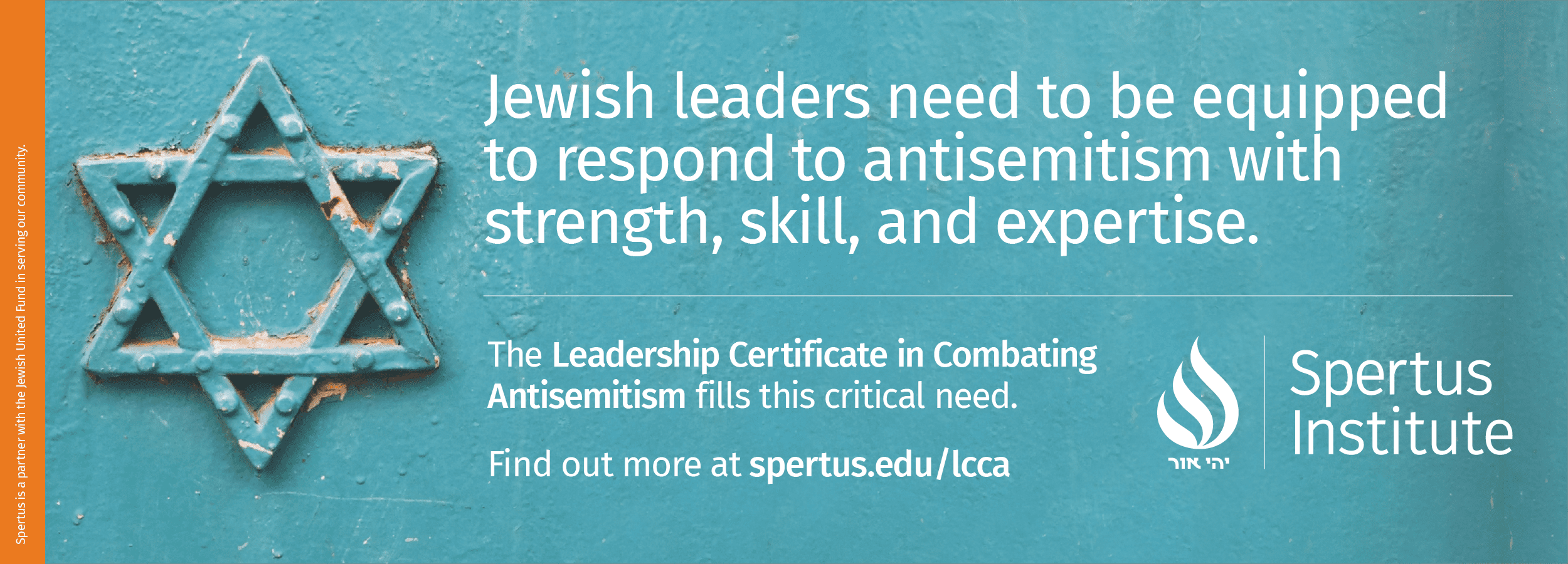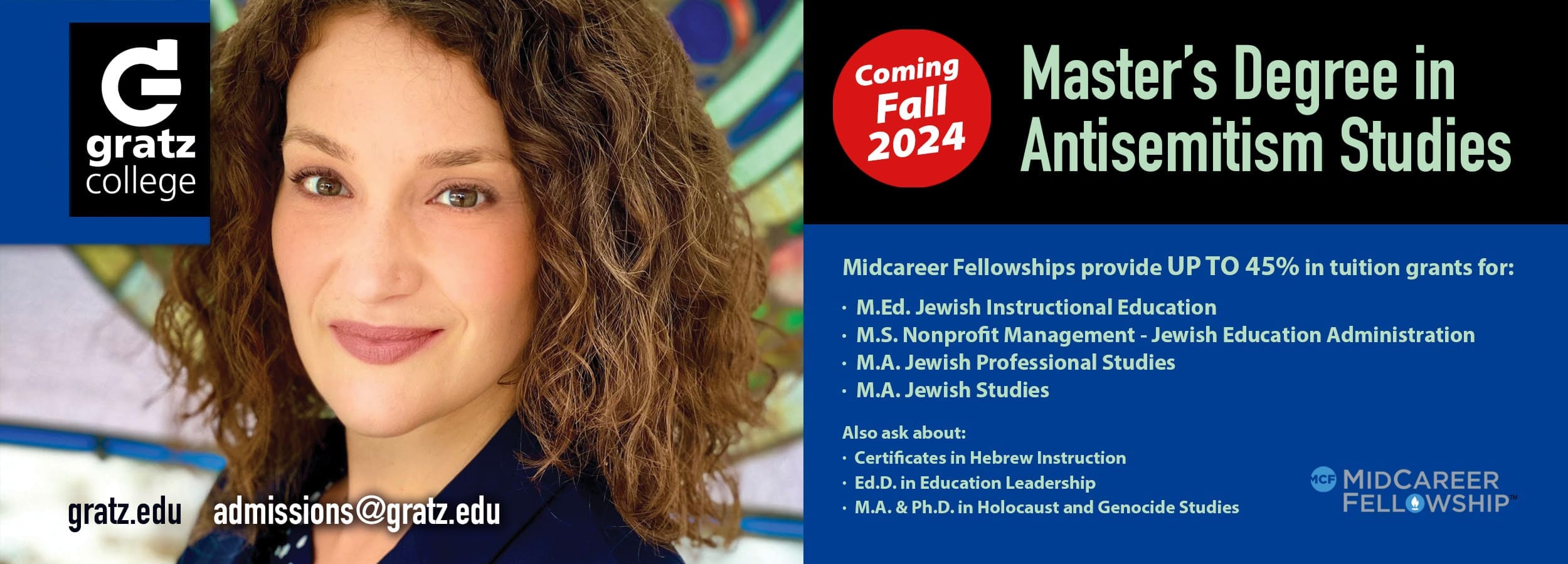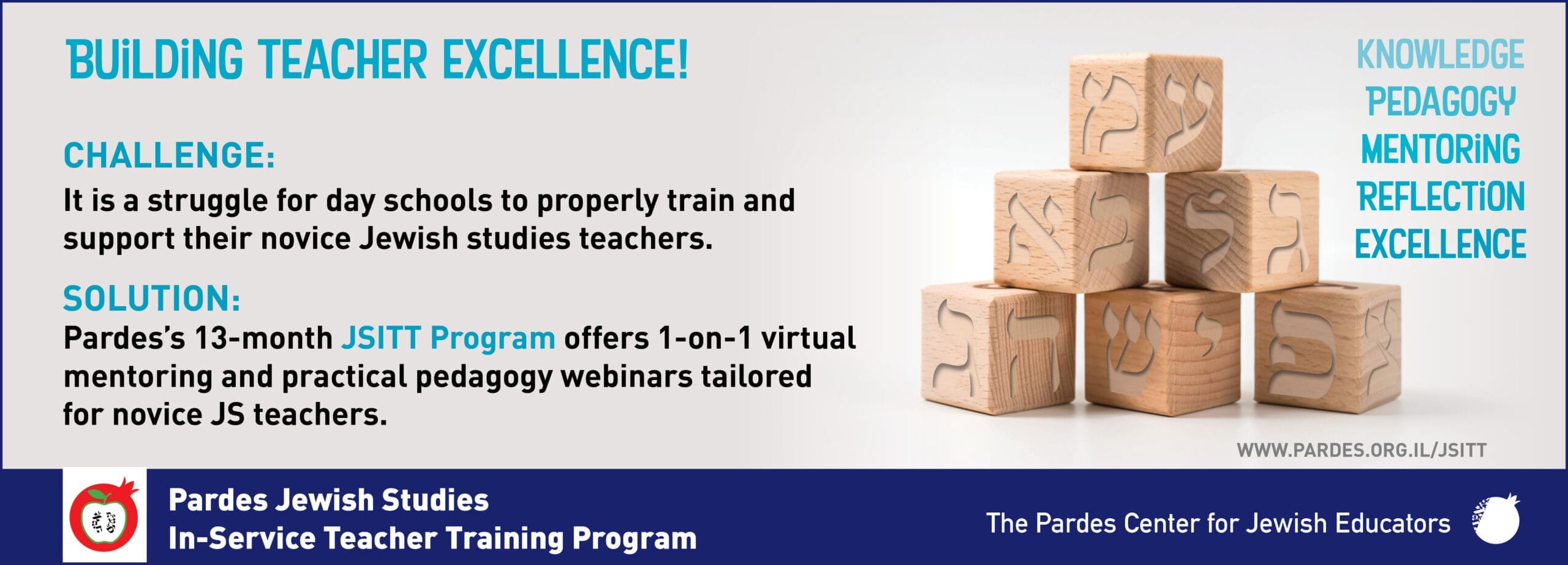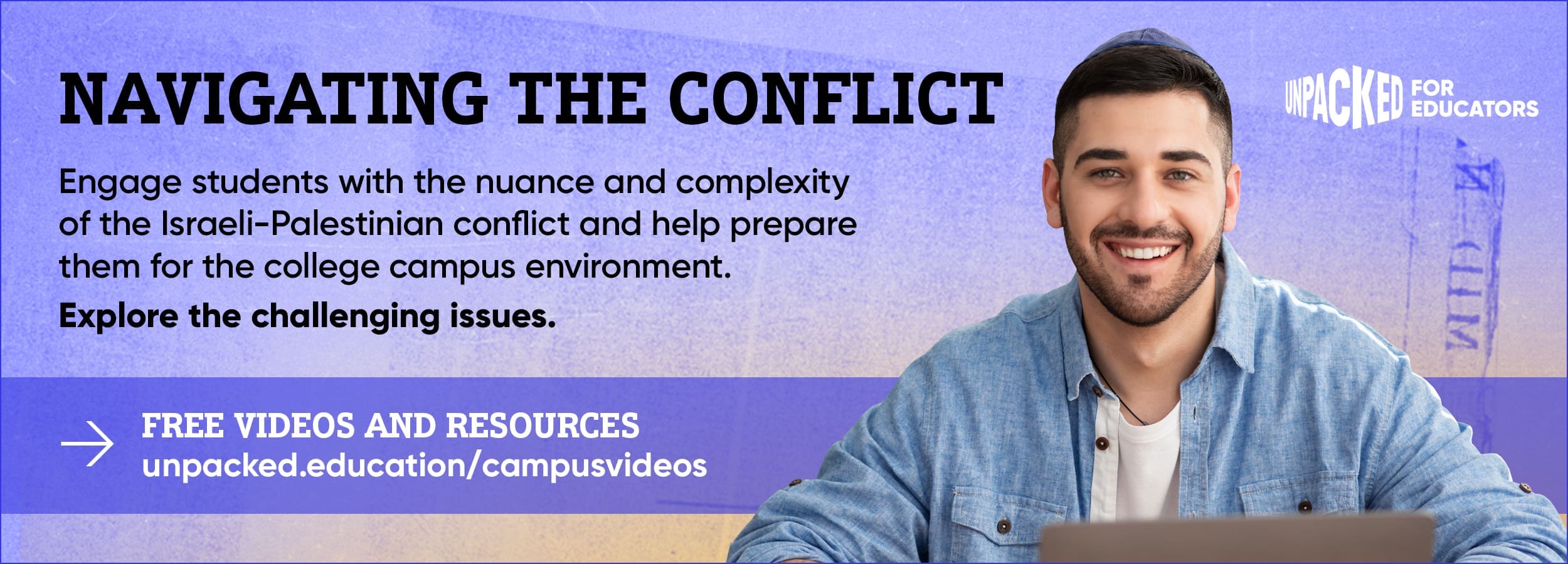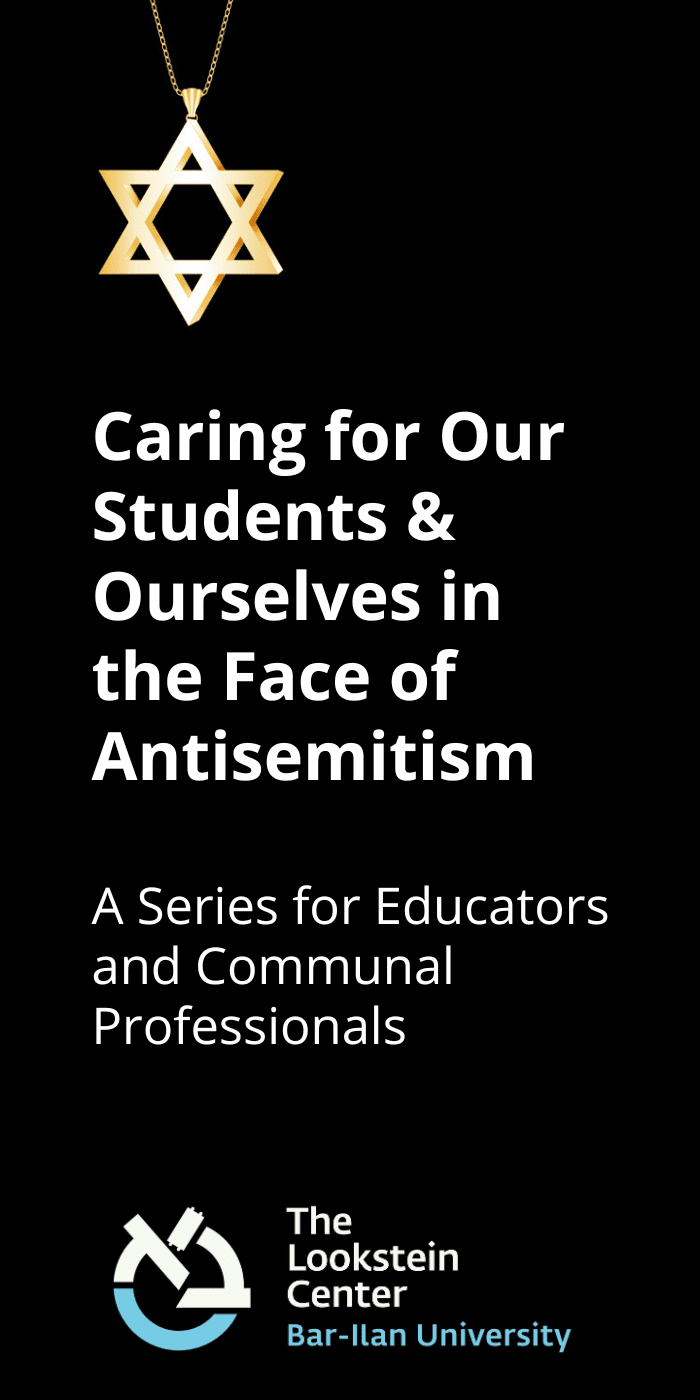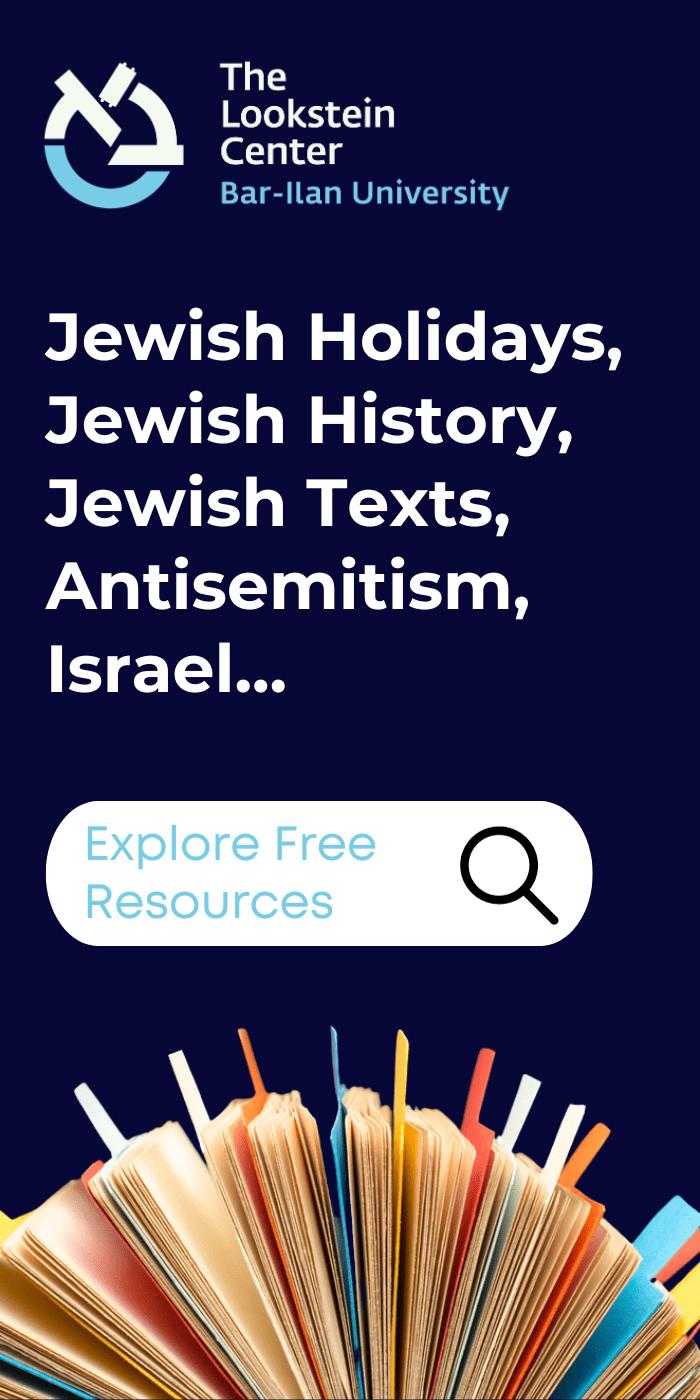Understanding the New Antisemitism with Yossi Klein Halevi – 2024 Update 📄🎬
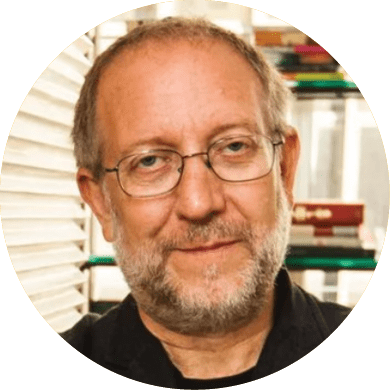
Yossi Klein Halevi is a senior fellow at the Shalom Hartman Institute in Jerusalem. He co-directs the Institute’s Muslim Leadership Initiative (MLI), which teaches emerging young Muslim American leaders about Judaism, Jewish identity, and Israel. His 2013 book, Like Dreamers, won the Jewish Book Council’s Everett Book of the Year Award. His latest book, Letters to My Palestinian Neighbor, is a New York Times bestseller. He has written for leading op-ed pages in North America and is a former contributing editor to the New Republic. He is the recipient of the 2019 “Figure of Reconciliation” Award of the Polish Council of Christians and Jews.
Jewish Educational Leadership: When did your concern about antisemitism begin?
Yossi Klein Halevi: [Laughs] When was I not concerned about antisemitism! My father spoke to me about his experiences as a Holocaust survivor when I was really young, three, four years old. That was part of his educational philosophy, that a Jew has to be prepared. And sooner or later, something is coming down the road again. My father’s great concern was that he was raising American children who wouldn’t have the survival skills, that because of growing up with luxuries, taking comfort for granted, we would be unprepared. My father was a very angry survivor. He was angry at the whole world, but most of all, he was angry at the Jews for not paying attention to the warnings. My father was Hungarian, and the great trauma for him wasn’t just the Shoah but the fact that the Jews of Hungary were so unprepared five years into the Shoah, that it took them by surprise in 1944. This, he felt, was an unforgivable offense of local Jewish leadership, of the Rebbeim. His passion, his survivor commitment was to raise Jewish children who would be able to cope with antisemitism. His lesson to me from the very beginning was that they hate us. “You live in a world that hates us and don’t have any illusions. You can fall in love with a non-Jewish woman and it’s all love, love, and who knows what, until the first fight and then it’s ‘dirty Jew.’” These are my primal formative memories. We were only 15-20 years after the Shoah, it was virtually contemporary. Whatever antisemitism I experienced on the streets—there were incidents, nothing too traumatic, getting pushed around, getting my kippah grabbed off my head, taunts—but when I think back on it, the smallest experiences of antisemitism were unbearable because they brought everything back. Any threat was every threat. Objectively I had a pretty safe childhood, but my inner life was dictated by threat and by the need to protect myself.
And even more than myself, to protect the Jewish people. That was my father’s most important lesson—it was never just about yourself, you have to protect the Jewish people. And so, for me, based on the kind of homeschooling in antisemitism that I received, it was a logical progression not just to join the Zionist movement, but to go right to the hard core. I remember going to a Bnei Akiva meeting and thinking, “This is childish.” A friend of mine who was in Betar said, “Come to the maoz in Bensonhurst.” Betar was serious. I was 12. I went to Camp Betar in the Catskills; we learned to shoot, to crawl on our elbows, we did night maneuvers—we were preparing for the Warsaw Ghetto. And then I discovered the Soviet Jewry movement, which had just begun. I joined the Student Struggle for Soviet Jewry in 1965, right around the time of my bar mitzvah. It was my response to my father’s education. So to answer your question, there never was a time when I was not actively thinking, not just about antisemitism but about lethal antisemitism.
I’m about five years younger than you; my parents were not survivors. They were American born. I did not grow up with antisemitism in the home but I experienced it on the street—beaten up a few times, pounded on a public bus. The crazy thing is that when I talk to people who are five years younger than me, they look at me and say, “antisemitism in America? Never! We never experienced it.” Even people just five years younger than me had a very different experience, one without active antisemitism. Something changed. So when I think about the American Jewish experience from somewhere in the mid-1970s until the mid-20-teens, there was a golden era of 40 years in the United States. And I ask myself, now that I hear your story, and your father’s voice coming through you: Is what we’re experiencing now a blip in the American Jewish experience, or are those 40 years the blip in the historical Jewish experience?
It’s a very good question. I’m not convinced that those 40 years were an aberration in the American Jewish context. I’ve been reading Jonathan Sarna’s terrific book, American Judaism: A History. It begins with one of America’s leading antisemites, Peter Stuyvesant, who tried to keep the Jews out of New Amsterdam, now New York City. My wife is a convert, a direct descendant of Peter Stuyvesant—so Peter Stuyvesant has Jewish Israeli progeny. For me, that’s a metaphor for America. You read of Stuyvesant’s attempts to keep the first boatload of Jewish refugees out of New Amsterdam, 23 Jews who came from Brazil fleeing the Inquisition. But reading the rest of Sarna’s account you realize how accepted Jews were in colonial times. Even before there was an America, Jews were already part of the fabric of colonial society. He describes an extraordinary moment of a celebration in the streets of Philadelphia after the signing of the Declaration of Independence. There’s a procession of all the Christian clergy of Philadelphia, together with the rabbis, and they’re marching through the streets linking arms. Can you imagine such a thing in 18th century Europe? So built-in to the foundational experience of America is acceptance of its Jews.
The problem is that it was never really an unconditional acceptance. Jews were always expected to change in some way. Yes, we will accept you, but lose the accent; don’t speak with your hands; become a little WASPish; give up your radical politics—there were preconditions. What happened in the last 40 years in America was that America finally accepted the Jews unconditionally. This, I think, is the big breakthrough for the generation that came right after mine. And I saw it beginning to happen before I moved to Israel in 1982; I experienced it.
I’d say that there were two breakthroughs that happened in the last 40 years. One, is the end of conditionality to Jewish acceptance in America. America now effectively told its Jews, “You can be as Jewish as you want, as assimilationist as you want. We have no conditions. You are fully American, and it’s your choice to decide whether you’re going to light a menorah in a public square, and dress like it’s 19th century Europe. That’s okay if that’s the kind of American Jew you want to be. Or you could be a country club Jew.” Total acceptance, that was the first breakthrough.
The second, related breakthrough was the end of the “American Jewish whisper.” The American Jewish whisper, which I remember well from childhood, is that when Jews were in a public space, if you would say the word Jew or spoke of any Jewish subject, you would lower your voice. It didn’t matter what you were talking about; you didn’t speak openly about Jewish issues. When Jack Ruby killed Lee Harvey Oswald, the American Jewish whisper went into overdrive. I’ve noticed over the years the gradual disappearance of the American Jewish whisper. Think about it. In recent years we have the trinity of Weinstein, Epstein, and Madoff—three of the greatest villains of this generation, and yet American Jews were not afraid of being turned into symbols of evil. The anxiety of previous generations of American Jews was gone… I remember Bernard Bergman. It wasn’t just the shanda, it wasn’t just a question of a hillul Hashem. It felt a little dangerous for a Jew, a rabbi, to be the villain of the year. Jews lost their anxiety in the last 40 years. This was an extraordinary psychological victory for American Jews.
But that’s what they’re losing now. And that is primarily because of the rise of anti-Zionism. Anti-Zionism is restoring conditionality to American Jewish life. “We’ll accept you in progressive spaces. We’ll accept you on campus and media. We have no problem with Jews, provided you’re the right kind of Jew, provided that you give up our generation’s equivalent of talking with your hands or sounding like Jackie Mason. Give up Zionism, and then we’ll accept you.” This is the return of conditionality to American Jewish life, and it is a great threat to American Jewish self-confidence and to the community’s long-term vitality. Because if you’re worried about how you’re perceived in a public space as a Jew, it will impact on your cultural and creative vitality.
I want to take you back in history. Your first book, Memoirs of a Jewish Extremist, describes your involvement in your younger years with Meir Kahane’s Jewish Defense League. As individuals, when we feel threatened, we go into fight or flight mode. I suspect that communities react the same way and I am concerned. How do we prevent an entire generation of young Jews, threatened by antisemitism, going into fight mode, believing that the only appropriate response is down the path of extremism?
That worries me. I look at my generation and the price we paid for centralizing trauma in our Jewish identity. I don’t think it was avoidable. The proximity to the Shoah, both in terms of time and of physical intimacy with survivors, meant that there was no way to avoid centralizing the Shoah. And “Never Again” summed up my Jewish identity growing up. It was the center point. When I began to struggle with religious questions and ask myself, “Am I a religious Jew? Do I believe in this?” one of the crucial factors in shaping my religious identity was the Shoah, and I know that’ll sound counterintuitive. I gained my faith because of the Shoah, partly by living in such close proximity to religious survivors. For me, the seminal moment in becoming a Jew of faith was seeing the famous photograph of the Jew who’s putting on tefillin while surrounded by laughing SS officers. That photograph was the image of kiddush Hashem, so that when I went through a period when I was far from being an observant Jew, I still kept tefillin going, in large part because of that photograph. The Shoah was a kind of confirmation for me of something metaphysical at work in Jewish history, and I had a sense of personal challenge to not disappoint the Jews who went to their deaths from a place of faith and the survivors who continued to live with faith. But I think my turn to faith was deeper than that sense of loyalty. The Shoah seemed to me so inexplicable that it couldn’t be contained in rational categories. Something metaphysical seemed to be at work here. I didn’t understand then and don’t understand now what that was. But I knew I wasn’t secular. The Shoah shaped my politics, my faith. Everything.
Today, I feel that a Holocaust-driven faith isn’t enough, just as a Holocaust-driven politics or Jewish identity aren’t enough. It has to be in the mix—you have to confront the implications of the Shoah, theologically, politically, in terms of our identity—but I don’t want future generations to be shaped as fundamentally as I was by trauma or threat. What I do believe is that we need to be shaped much more deeply by the fact that we are a people that not only went through Auschwitz, but that defeated Auschwitz and, in some sense, reversed Auschwitz by moving from the lowest point in our history to what I regard as the peak point in our history, which is Jewish life today. By any parameter, this, to my mind, is the great moment of Jewish history since Sinai, and we achieved it a few decades after the Shoah. That, for me, is the center point of a contemporary Jewish identity. I do believe that the Shoah needs to be at the center, but not in the way that it was for my generation, not as trauma but as triumph. Educationally, we need to be sure that we do not raise a generation of traumatized Jews, but of strong, resilient, self-confident Jews who are aware that threat is a part of Jewish life, but who are also aware that there’s no threat that can’t be overcome. And that, to me, is, is the real meaning of being a Jew today.
Your last two sentences just took my breath away.
There is a larger project that I’m working on, which is about redefining the Jews as a survivor people. As far as I can recall, we are not commanded to see ourselves as if we were slaves in Egypt; we’re only commanded to see ourselves as if we ourselves left Egypt. I think there’s a very good psychological reason for that. The trauma belongs to those who experienced it. My father, in a way, tried to turn me into his contemporary, but I wasn’t. My father and I became contemporaries after the Shoah, when we became post-Holocaust Jews together. I was part of the first generation after the trauma that was in some sense, the transitional generation to becoming a survivor people. For me, the imperative is not to see yourself as if you were in Auschwitz, but to see yourself as if you came back from Auschwitz, as if we were in the DP camps when they were reconstructing Jewish life.
The society and culture created in the DP camps are one of the greatest Jewish achievements in our history; it’s a nearly forgotten story. That’s because there are so many dramatic stories from 1945 to 1948. The part of the DP experience that we remember are the boats trying to run the British blockade. But the actual communities that these 20-year-old kids created in the DP camps is an extraordinary story. There were something like 70 Jewish newspapers in the DP camps. The first Jewish newspaper was published in Buchenwald, a month after the war, and it was a handwritten newspaper called Tehiyas Hameisim (the resurrection of the dead ). A month after the war, people were still dying—and they’re publishing a newspaper. This is the story that we need to own. When we think about antisemitism and threat, the most important educational lesson is how the ultimate victims of antisemitism not only survived it, but reversed it by turning the abyss into an experience of redemption.
Are you concerned about the rise of extremism among young American Jews?
I’m very concerned. My most immediate concern is leftwing extremism, the rise of anti-Zionism among young American Jews. I’m concerned about a parallel outbreak of extremism on the other end of the spectrum, an outbreak of far-right Zionist extremism, the kind of Zionism that I was attracted to when I was young. Each part of the Jewish community has its own unique yetzer hara (temptation) that it has to confront, and that yetzer hara is rooted in each community’s strength. The strength of liberal Judaism is its concern for the Other—tikkun olam, an awareness that American Jewish prosperity requires of Jews to be generous toward others, to translate our experience as foreigners and refugees to refugees today. I honor that generosity in the liberal Jewish worldview; it’s something that when I was a teenager would have driven me insane. But today, I’m very moved by the fact that the Tenement Museum, for example, is one of the sacred landmarks for liberal American Jews. It’s amazing to see how American Jews experience the Tenement Museum, they take their children and grandchildren, to teach them to appreciate their humble origins. But the yetzer hara of tikkun olam-ism is to become so universal that you betray the tribe.
The strength of the Orthodox community is its unconditional loyalty to the tribe. And the yetzer hara there is to turn unconditional loyalty into xenophobia—and, you know, I have a doctorate in xenophobia, that was my education. I’m particularly aware of that yetzer hara, and I’m really worried… Look what we’re experiencing in Israel. We haven’t had a Kahanist in the Knesset since Kahane himself, and Kahanism is back stronger than ever. And when I think about the Orthodox communities that I know in America, they are as vulnerable to that form of extremism as liberal Jewish communities are to anti-Zionism. Each community needs to develop its own immune system to its particular yetzer hara.
This is such a fascinating analysis. Do you have anything you’d like to add?
To give in to the yetzer hara of Kahanism, or whatever variant of Kahanism is percolating, is to betray the achievement of the survivors. To raise traumatized Jews is to undo the victory of Zionism, it’s to undo the victory of our parents who didn’t only see themselves as victims. The older they got, the more they saw themselves as survivors. You know, the term survivor didn’t exist when we were growing up. And it’s interesting that it didn’t exist yet, and I think that, in part, it’s because they weren’t yet survivors. They used the language griner [as in, greenhorn] or simply “from there.” My father called himself a refugee. It was only in the 1970s and 80s, that the dignified term “survivor” became part of the Jewish vocabulary. We earned that as a people—and we need to prove, now that we are experiencing some return of threat, that we have learned something from our parents. That we’re not the same people we were 100 years ago. We’re a strong people, we’re resilient, and we’re going to win the battle against the delegitimization of Israel—even if the battle lasts a generation. That’s the educational message we need to convey.
And God forbid that we should be teaching our kids what my father taught me, which is that the whole world hates the Jews. Our experience over the last 70 years has been very different. Our experience in America has been very different. I grew up in the Soviet Jewry movement. Why did the Soviet Jewry movement succeed? Because we had extraordinary non-Jewish allies. Congress adopted Soviet Jewry as a major human rights commitment. We’re not the same people, and much of the world isn’t the same either. Yes, we face serious threats, and those threats are growing. But we need to be very careful not to imagine ourselves as back in the 1930s and not to demonize the non-Jewish world.



Yossi Klein Halevi is a senior fellow at the Shalom Hartman Institute in Jerusalem. He co-directs the Institute’s Muslim Leadership Initiative (MLI), which teaches emerging young Muslim American leaders about Judaism, Jewish identity, and Israel. His 2013 book, Like Dreamers, won the Jewish Book Council’s Everett Book of the Year Award. His latest book, Letters to My Palestinian Neighbor, is a New York Times bestseller. He has written for leading op-ed pages in North America and is a former contributing editor to the New Republic. He is the recipient of the 2019 “Figure of Reconciliation” Award of the Polish Council of Christians and Jews.
Reach 10,000 Jewish educational professionals. Advertise in the upcoming issue of Jewish Educational Leadership.
Do you want to write for Jewish Educational Leadership? See the Call for Papers for the upcoming issue.
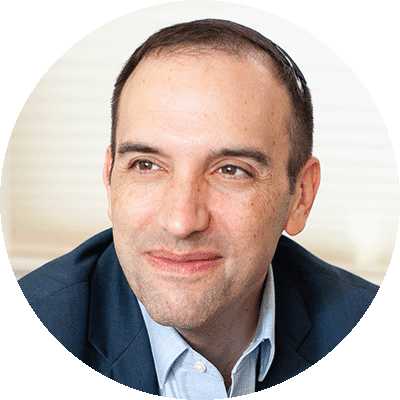

From Fear to Resilience – 2024 🎬
The whole world has changed. I feel like we’re at a historic moment for the Jewish people. This is one of the major, major dividers within the Jewish world today. Those who have never really known Jewish vulnerability and those who know it and feel a deep in their kishkes. And I think that divide has been kind of blown up right now. We’ve known through the statistics that antisemitism has been on the rise for the last many years. And I think Pittsburgh, Tree of Life, really changed in some ways the American Jewish condition. It kind of woke us up to the fact that it can happen here.
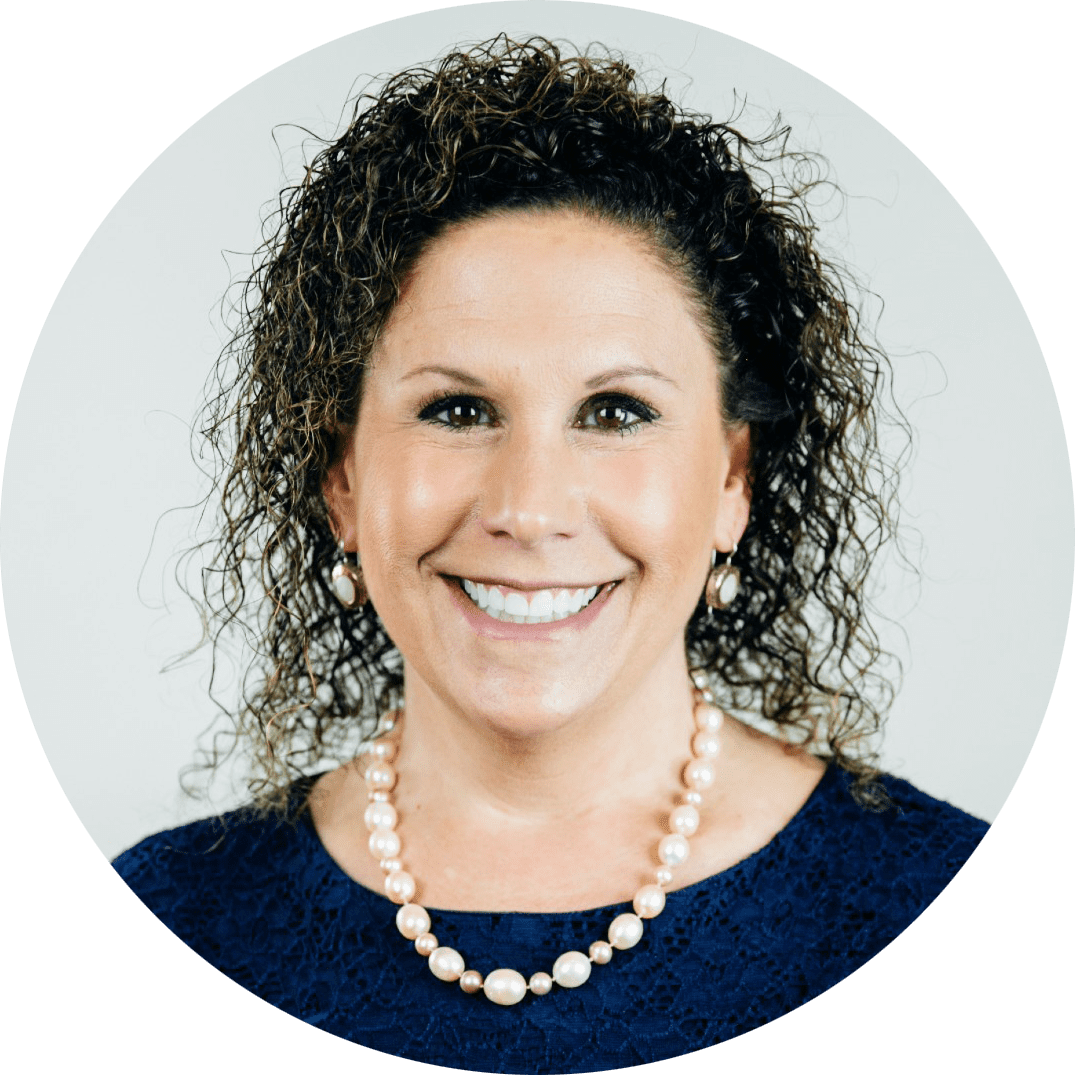

Building Jewish Strength – 2024 🎬
I think among the things that are concerning for me is that the people that I work with, and I’m in a Reform congregation, we’re a very large community with a lot of diversity within that community. I think that what is particularly concerning to me is that our people are so caught off guard and surprised. That all of the sudden in 2023, all of the sudden it’s as if there wasn’t antisemitism before October 7th. We either had our heads in the sand or we were just kind of in a position of not really acknowledging the extent to which antisemitism is still a part of the human existence. I won’t say the Jewish existence because I think antisemitism and anti- antisemitism is more than a Jewish concern.
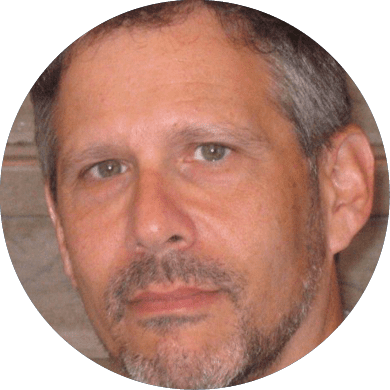

Confronting the Campus Crisis – 2024 update 📄🎬
I think what we’re seeing now is a globalization of antisemitism and it’s become a mass movement in the name of anti-Israel activism, in the name of anti-Zionism, which is not to say that anti-Zionism automatically equals antisemitism, but the way that anti-Zionism is expressed particularly now, is in an antisemitic way. One example, for instance, maybe you would a draw a Venn diagram and you would have a big circle and that big circle says criticism of Israel. Then you have another circle, which is antisemitism, and then you have a bit of an overlap. And the overlap seems to have increased recently. Why that is, is because Hamas is in itself an antisemitic organization.
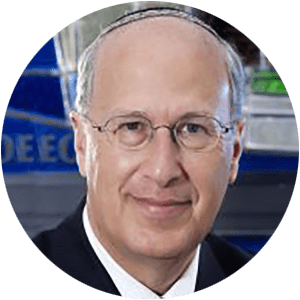

Antisemitism, Debating a Lie – 2024 🎬
The most concerning thing I find about the uptick in antisemitism is the lack of knowledge on the part of Jewish students and others about the real history of the situation. The kids don’t know how to have a cogent debate. They don’t have the knowledge. They don’t have the history to truly stand up and speak truth to lies. And that actually is the most disturbing thing. If there’s violence, it’s obviously extremely disturbing. But I’m not as worried about that as the long term issues, both on college campuses and now on high school campuses, where the lack of knowledge and the level of ignorance is so profound that I think we are in a strategically dangerous spot with our youth who don’t know.
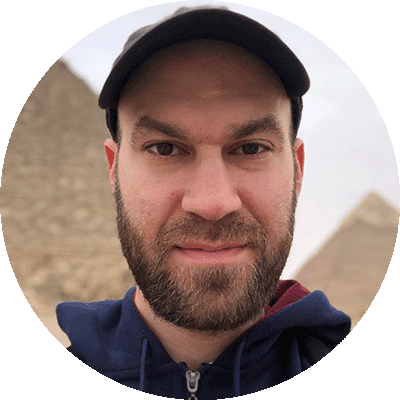

Seeing Antisemitism Clearly – 2024 🎬
The time when my thinking on antisemitism changed the most in the last five years was actually 2021, not now. In 2021, we had a similar situation on a smaller scale to what we have now, which is Israel and Hamas fighting and violence against Jews outside Israel. Hate crimes, attacks both at protests but also just on the street. And the thing that changed my thinking the most was not fighting in Israel and was not even those attacks. But it was how the reaction to those attacks from people who are most likely to stand up for minority groups who are being subjected to racism or prejudice was anything ranging from apathy to justifying or contextualizing the violence.
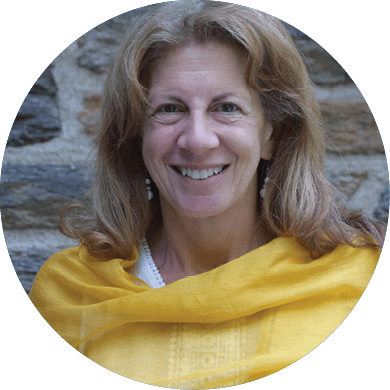

Antisemitism – So Close to Home – 2024 Update 📄🎬
I appreciate the opportunity, unfortunately, to revisit the question of antisemitism and the Jewish day school landscape. And it was almost like looking back at an innocent time to think about the Pittsburgh experience, which is what I wrote about, the proximity of my experience to the three congregations that were massacred in the Tree of Life building. At that time I definitely had it in the context of, well, I’m not surprised. I’m a child of Holocaust survivors. This is going to happen periodically. The big difference was the feeling that the world and the communities and the rational universe were very empathetic and sympathetic to what happened to the Jews in our community.
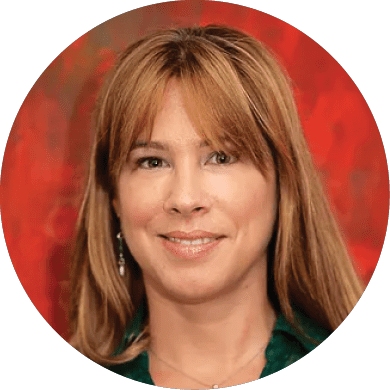

Antisemitism and Identity – 2024 Update 📄🎬
So the question was, in the last two years, has your thinking on antisemitism changed? And the answer is very straightforward. My thinking has not changed whatsoever. I knew that antisemitism is an issue, even though people around me have been minimizing and denying it and now it’s just out. It’s clear that there is bias even among people who are not necessarily antisemitic. It seems like there is a radicalization among younger people. I’m wondering to what extent education has to do with it. I got my Ph.D. here and I’ve seen the environment. There seems to be also a lot of misinformation at least on the school campuses or university campuses.
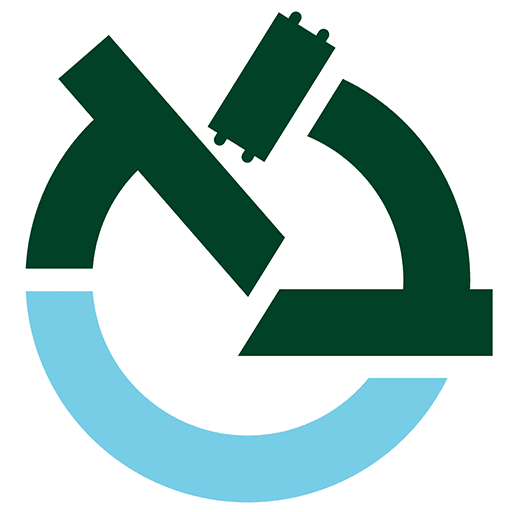

Caring for Our Students & Ourselves in the Face of Antisemitism🎬
Jewish educators are dealing with antisemitism on two levels. We are dealing with our own shock, fear, anger, and uncertainty. And at the same time, we need to be able to address antisemitism in our classrooms, camps, or youth groups. We need to help our students feel safe and supported, and we need to make sure they have some tools in their arsenal to rely upon. While there are so many questions, many without answers, there are some things that we can do right now to help our students feel safe and supported. This series of videos from The Lookstein Center at Bar-Ilan aims to give educators tools for helping our students through these troubling times.
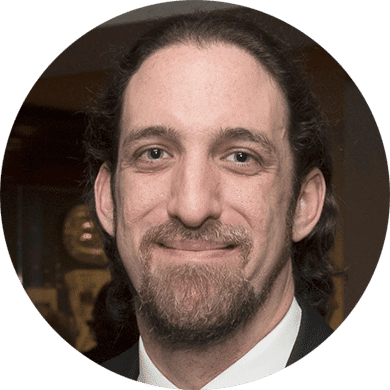

Antisemitism is Systemic, and Yet Deeply Personal – 2024 Update 📄
In the United States and across the globe, there is an all-out assault on Jews arising from the political left, political right, and seemingly everywhere in between. From virulent and overt violence to the dog whistles of antisemitic tropes, one can see antisemitism alive and growing in almost every facet of life. In a survey conducted by ADL, over 1 billion out of 4 billion people surveyed across the world harbor antisemitic attitudes. That is over 25%. As the Program Manager for Echoes & Reflections, my career is focused on helping secondary educators effectively and responsibly teach about the Holocaust and contemporary antisemitism.
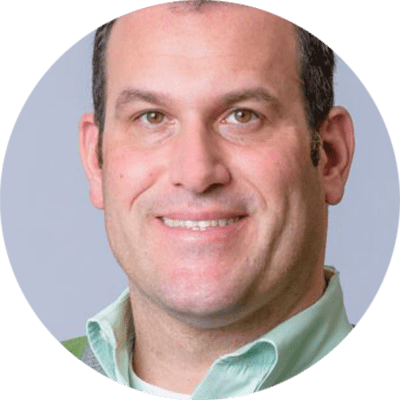

Insights From College Guidance in the Wake of October 7th – 2024 📄
I have been privileged to work at SAR High School since 2007, assisting many hundreds of graduates with the college admission process. It has been a true labor of love, helping a student discover the institution that could be their perfect match for four transformative and memorable years. Front and center in the admission process has always been a student’s growth as a Modern Orthodox Jew, with considerations like kosher food, daily minyanim, Hebrew language and Jewish studies departments, Torah learning opportunities, and Israel advocacy coming into play as much as academics and student life.
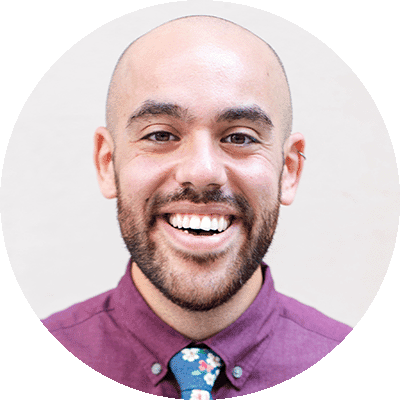

Reflections on College Guidance after October 7th – 2004 📄
This all happened at a very interesting time in the college application cycle. When the war started and we started seeing anti-Israel and antisemitic activity happening across the country, our immediate thought in the Milken college admissions office went to students applying early decision to schools, because that’s a binding contract—if you’re admitted, you have to attend. October 7th was a month before early decision, early applications were due, and we had to do triage for those students. For students who were not applying early decision the timing wasn’t as critical.
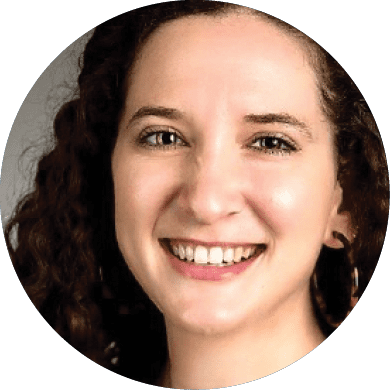

Proud, Progressive, Zionist: An Interview With Sara Liss 📄
Zioness is a movement of Jewish activists and allies who are unabashedly progressive and unapologetically Zionist. Our whole goal is to ensure that there is always a space for Jews and Zionists in the progressive movement and in the progressive world, which is where most American Jews naturally find themselves politically anyway.


